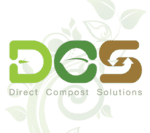12 things to consider when choosing a composter
This is a rough guide to consider what it is you want out of composting and things to think about that might affect your decision. We all have different needs so one system might suite one person but not you. It’s up to you to choose a method that works for you.

1. What is it you hate about composting?
- The time it takes to manage some composters – and/or it’s a chore
- Smell produced by some composters
- Difficulty with getting the right nitrogen/carbon mix
- Don’t like big composters taking up space or being visible in the garden
- Vermin they attract – flies and rats or snakes nesting inside them
- The continuous cost of any extra product to make some composters work
2. What do you want to achieve by composting?
Or – What do you like about Composting.
- Produce soil to use for growing veggies and ornamental plants
- Can’t stand smelly council bins
- Don’t want to use fertilizers in your garden
- Prefer a more organic system
- Want to help the environment
- Just want good soil in your backyard
- Hate throwing your waste in the council bin or
- Storing waste overnight in a freezer
- Can’t stand smelly council bins
3. What do you want to compost?
- All your kitchen waste or just some of it.
- Worm friendly waste only
- Garden waste, green waste, grass clippings, weeds etc
- Paper, cardboard, junk mail, old bills
- Animal excrement – dog and cat poo in particular
- Farm animal waste
4. Do you have animals that get a portion or all of your waste?
- Chickens / Ducks / Geese / Guinea Pigs / Rabbits
- Horses / Cows / Goats / Pigs / Sheep
- Dogs / Cats
- Wildlife – Bandicoots / Foxes / Busk Turkeys / Antechinus / Racoons (Canada)
- Ground Hogs & Prairie dogs (America)
5. How much time do you have to compost?
- Your time is your own – unlimited (retired perhaps)
- You have some time but prefer to use it for gardening or other activities
- You are too busy to compost
- You have children that can do it for you
6. Do you grow or want to grow vegetables?
- You want to grow your own vegetables
- You already grow your own vegetables
- You want to teach the kids how to grow their own vegetables
- You have not had much success with propagating and growing your own food
7. Your physical fitness?
- Back problems – Can’t lift heavy weights Can’t bend down
- Disabilities – wheelchair bound
- Age
- General health
8. Size of your property?
- Farmland – unfenced / fenced
- Large / small urban block
- Courtyard
- Unit / Balcony
- Other
9. How many people in your household?
- One person
- Two people
- A family of three to five
- A family of five to ten
- More
10. How much waste do you produce?
- One bucket full a day
- One bucket full every 2 to 3 days
- One bucket full once a week
- One bucket full every two weeks
- More than one bucket a day
11. What is your climate like?
- Temperate
- Tropical
- Sub-Tropical
- Cold
- Arctic – You live in the snow perhaps
- Desert – Hot and dry
12. What type of soil do you have?
- Normal
- Sandy / Sandy Loam
- Clay / Clay Loam
- Shale or Caliche soil
- Introduced top soil
- Raised Garden Beds – a mixture
8 Different Methods of Composting
1. Open air composting (hot /cold composting)

2. Direct Composting (trench or in-ground composting)

3. Tumbler composting (A form of hot composting)

4. Worm composting (Vermicomposting)

5. EMO composting (Bacteria composting)

6. Compot Composting (Combination Composting)

7. Commercial Composting

8. Mechanical Composting

8 Methods of Composting
Pros and Cons of Open Air Composting
Pros and Cons of Trench Composting
Pros and Cons of Tumbler Composting
Pros and Cons of Worm Farm Composting
Pros and Cons of EMO Composting
Pros and Cons of Combined Compot Composting
Pros and Cons of Commercial Composting
Pros and Cons of Mechanical Compostingeo.














